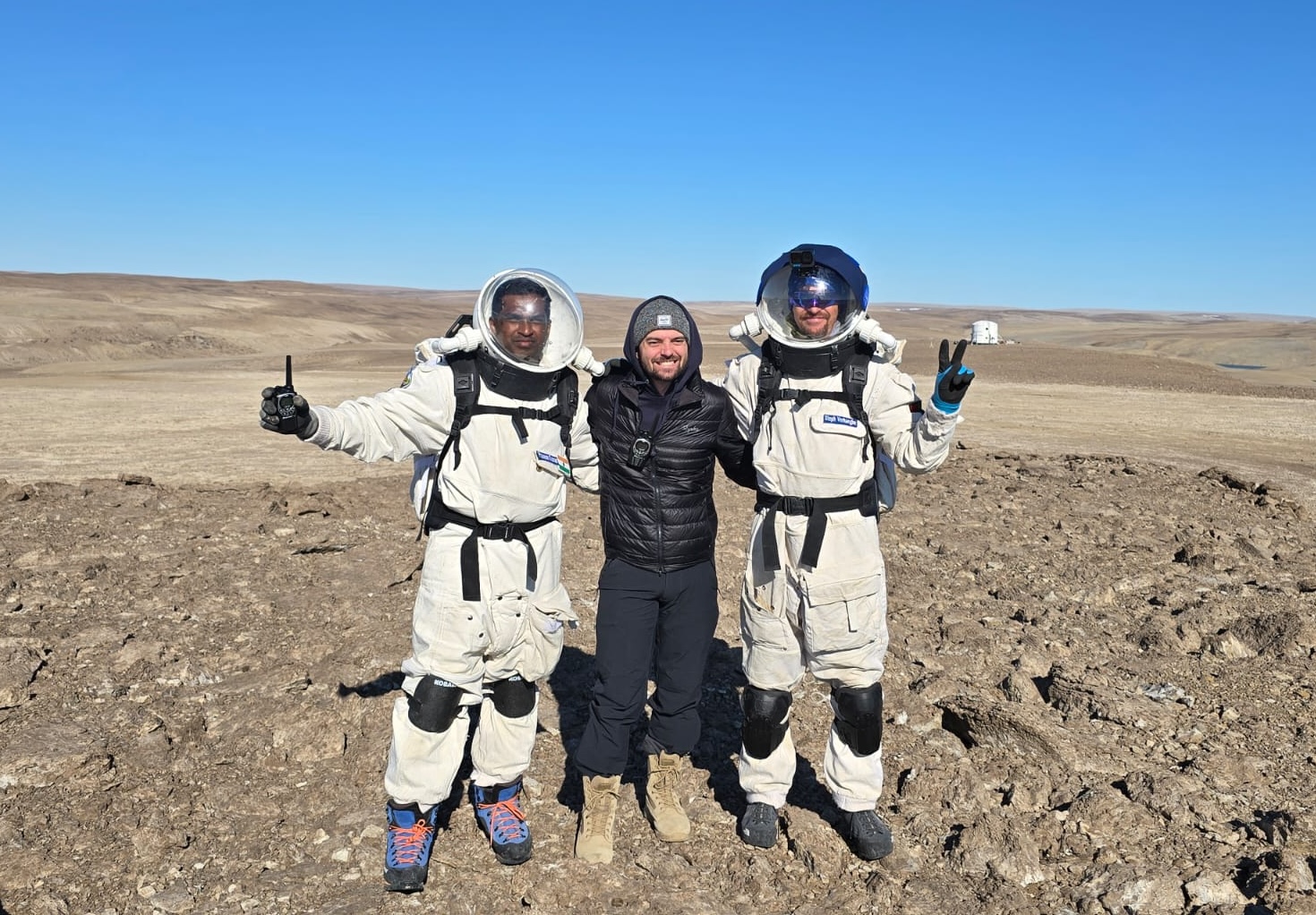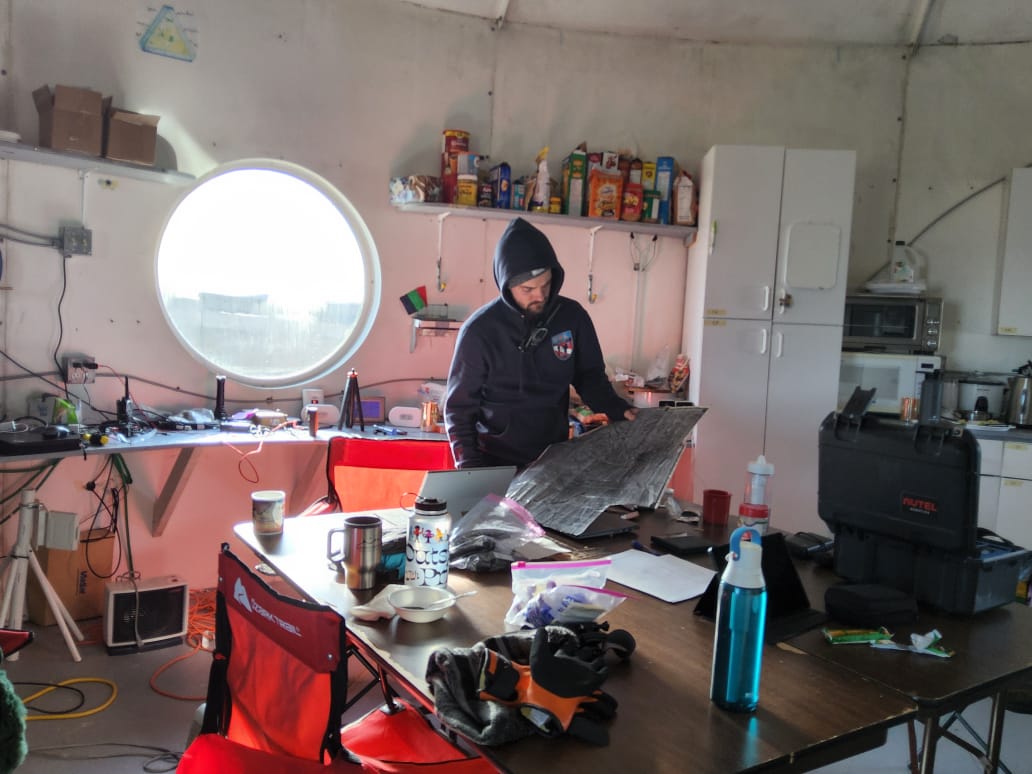
To prepare for the next stage of space exploration and habitation, researchers here on Earth must practice in the nearest thing we have to other worlds. Such "analog missions" take place in deserts, underwater, or deep in the arctic; the latter is where Aerospace's Trevor Jahn traveled for a two-week Mars analogue mission.
"This is as close to being on Mars as you can get while being on Earth," Jahn says. "The arctic is unforgiving and desolate, making this analog unique compared to any other analog on Earth. It creates a great opportunity to test new space technologies, like Project Phantom, and learn important lessons for living and working on other planets."
The Mars Arctic Research Station, known as MARS, is deep in the Canadian northern territories, on the uninhabited and desolate Devon Island. Here, far away from civilization, a team of seven spent two weeks under conditions analogous to those they would experience on an actual Mars mission. The operation is run by The Mars Society.
The team stayed in a small habitat that they generally left in full spacesuits, and communication (served by Starlink) was limited by a 20-minute delay. They also performed experiments, both real and simulated, as if they were really on Mars.

For instance, the team took rock and water samples on their EVAs as if they were collecting them for analysis on Mars itself. For his part, Jahn tested a high-tech telepresence and digital twin program called Project Phantom.
Using handheld lidar and drone flights, Jahn worked to create high-resolution 3D representations of the habitat and surrounding environment, which can be used for remote operation, teaching, communication and other purposes.
Jahn and his fellow analogue astronauts started their mission on July 23 and began their return to Earth on Aug 1, ready to analyze the data collected at MARS. Formal results will take time to put together, you can read more about this mission and previous ones at The Mars Society.
